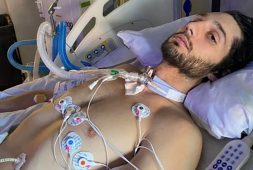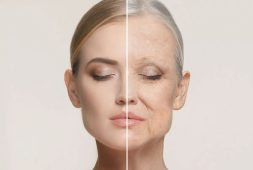
When you hear the term post-traumatic stress disorder, or PTSD, you probably think of extreme situations such as war or a violent attack. But according to James Gordon, M.D., founder of the Center for Mind-Body Medicine, you can get PTSD even if you have not gone through actual physical harm or severe emotional shock.
Trauma is becoming more common nowadays. Current events and natural disasters are affecting more people than ever, even if they do not realize it. A stressful work environment, an abusive relationship, and severe illness are just some of the things that can cause trauma. It can be a single event or a series of events that triggers extreme fear and anxiety, leading to emotional, physical, or psychological harm.
Post-traumatic Stress Disorder (PTSD)
Post-traumatic stress disorder is a psychiatric disorder that is triggered by an extremely stressful or terrifying event, whether experienced first hand or just as a witness. If you have gone through such a situation and begin to experience severe anxiety, nightmares, or flashbacks, you may be suffering from PTSD.
Some of the most common traumatic events that lead to this disorder include exposure to combat, sexual violence, physical assault, childhood physical abuse, being threatened with a weapon, and getting into an accident. Fire, natural disaster, mugging, kidnapping, torture, plane crash, terrorist attack, and a life-threatening medical diagnosis can also cause PTSD.
Risk Factors
While anyone can develop post-traumatic stress disorder after going through a traumatic event, there are some factors that can increase your risk of doing so. These include having experienced trauma that was severe or long-lasting, having experienced other trauma earlier in your life, having a job that exposes you to traumatic situations, suffering from other mental health issues, substance abuse, lack of a good support system, and having blood relatives with mental health problems.
Symptoms of Post-traumatic Stress Disorder
Symptoms of trauma may include anxiety, depression, insomnia, nightmares, and severe emotional distress. These may affect your ability to go about your daily business, and may even cause problems at work, in relationships, or in social situations.
There are four types of PTSD symptoms, namely intrusive memories, avoidance, negative changes in thinking and mood, and changes in physical and emotional reactions. Each person can experience symptoms from any group, and these symptoms may change over time.
Intrusive memories may include recurrent and disturbing memories of the traumatic event, experiencing flashbacks of the event as if it was happening again, nightmares about the event, and extreme emotional or physical reactions to things that remind you of the event.
Avoidance may include avoiding thoughts and discussions about the traumatic event and avoiding anything that reminds you of the event, such as people, places, or activities.
Negative changes in thinking and mood may include negative thoughts about yourself or others, a sense of hopelessness, trouble remembering things, detachment from those close to you, having a hard time keeping your relationships, loss of interest in things you used to enjoy, emotional numbness, and difficulty feeling positive emotions.
Changes in physical and emotional reactions may include constantly keeping your guard up, self-destructive behavior, being startled or frightened easily, sleep problems, trouble concentrating, feelings of guilt or shame, irritability, and aggressive behavior.
If left untreated, PTSD can affect not only your mental or emotional health but your physical health as well. It is possible for survivors of trauma to develop physical ailments, such as digestive problems, autoimmune disorders, and heart disease. Moreover, trauma can push a person to abuse alcohol or drugs or to develop an eating disorder. At worst, it may even lead to suicide.
Healing Trauma

The first step to healing is recognizing your condition. Some people do not realize that they are suffering from trauma because symptoms sometimes do not show up until years after the traumatic event. In other cases, the event might have been so overwhelming that memories of it were repressed. The person might not even remember that it happened.
Once you realize that you have PTSD, the next crucial step is to seek help. If disturbing thoughts and feelings about the event that caused your trauma have been hounding you for more than a month, it is important to see your doctor or consult with a medical health professional. It is also a sign that it is time to get help if your symptoms are severe or if you are having trouble functioning normally. If you get treated right away, it can prevent your symptoms from getting worse.
Your therapist may prescribe a form of therapy specifically designed for the treatment of trauma. Some examples are prolonged exposure, eye movement desensitization and reprocessing (EMDR), and mindfulness-based stress reduction (MBSR).
With prolonged exposure, a therapist helps you stay grounded as you re-experience your trauma. EMDR involves one of the various techniques used by a therapist to help you process your traumatic memories safely. Finally, MBSR is an eight-week long program where you learn how to focus on the present rather than dwell on the past or the future.
Meditation is another technique you could try to clear your thoughts. However, it is better to do this with a therapist or guide who knows how to deal with trauma. Unguided meditation may induce flashbacks or aggravate your trauma instead of easing it, if not practiced appropriately.
Physical activity such as walking or yoga can help you recover from trauma. Dr. Gordon developed a technique wherein you shake your body for five minutes, immerse yourself in stillness for three, then dance to your favorite music for five.
Because the chemicals your body produces during trauma can damage the villi in your intestines, making dietary changes may address some of the effects this has on your gastrointestinal tract. Consume healthy foods such as fruits, vegetables, and lean proteins.
Healing from trauma can not be done alone. Reaching out to people close to you, joining a support group, or connecting with other people who have been through similar experiences can go a long way in your road to recovery.



